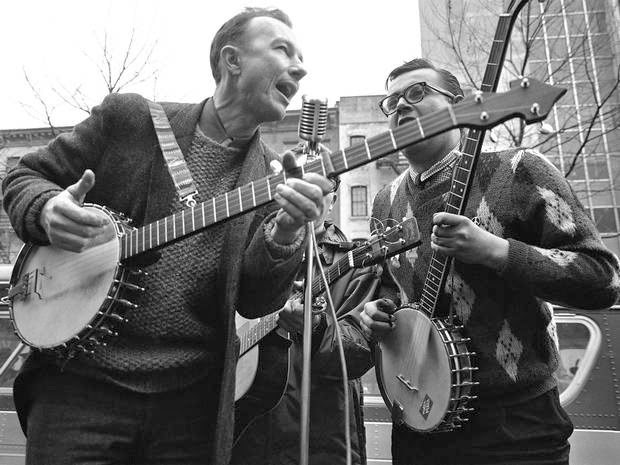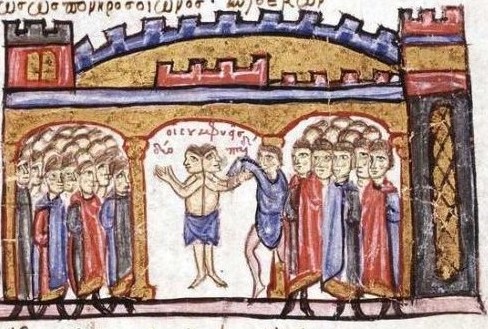 |
| nice pullover... |
...Seeger saw his work with folk music as complementary to radical cultural theorists and composers such as Eisler, Theodor Adorno, Max Horkheimer. But while these thinkers had at best a complicated relationship with the new popular music, Seeger threw himself headlong into it, arguing that there was something in such music that workers not only identified with but that might set their own natural creativity ablaze.
This was not the overwhelming of the sophisticated by the crude, of
“serious music” by the “lowbrow,” as many have argued. It was a
conscious political and cultural outlook for which the tasks of lifting
up forms of art forged in the subaltern and pushing against the
formalities of bourgeois culture could be one and the same. Though
Seeger was key in pushing the argument within the Communist Party, he
represented many others in the progressive and radical ranks of artistic
expressives.
The Communist Party would end up embracing folk music as a tactic of its
Popular Front phase. And though most of the aesthetics that rose from
the Popular Front years hewed closer to the realist than the
experimental, very few of them would survive the hammer of McCarthyism.
Folk, on the other hand, would endure well beyond the decline of the
American CP.
excerpts from
.









